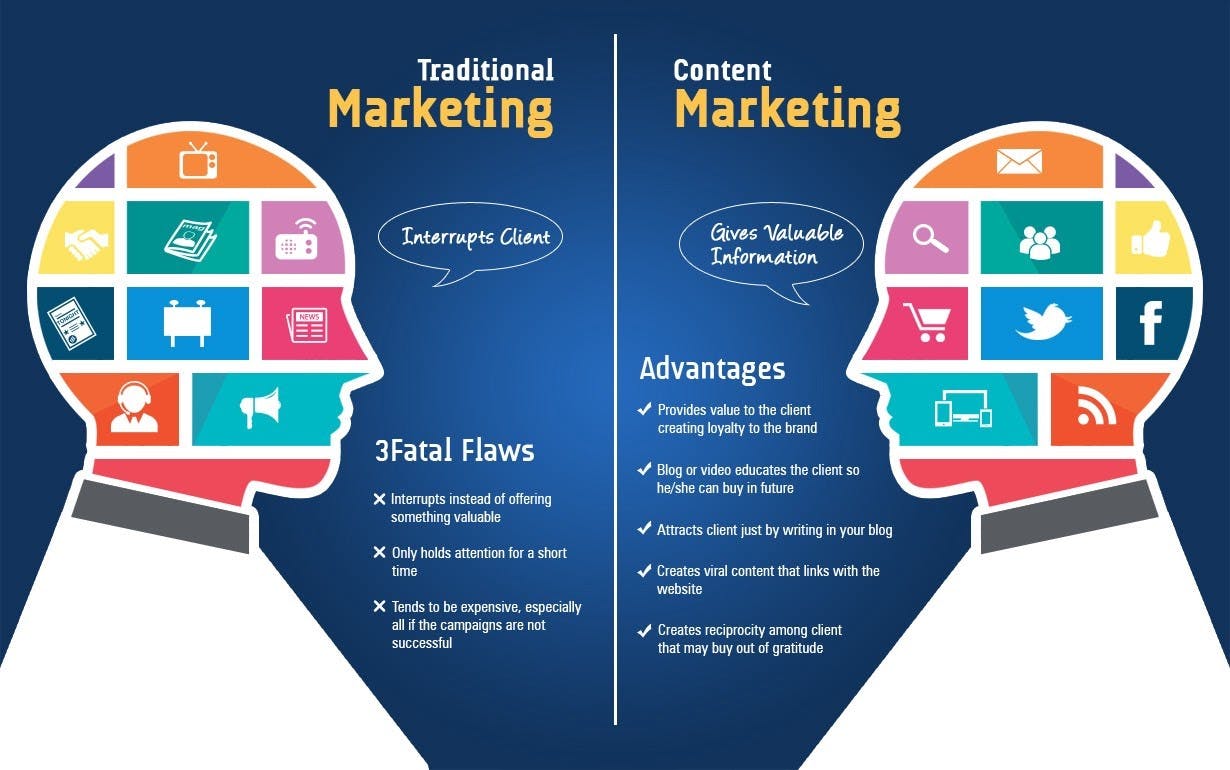Is Content Marketing Worth the Investment Compared to Traditional Marketing?
Content marketing and traditional marketing are two distinct approaches to reaching and engaging with audiences. Here's a comparison of their effectiveness and value:
Key Differences
-
Engagement and Long-Term Value: Content marketing focuses on building customer relationships and providing valuable information, leading to long-term engagement and authority establishment. Traditional marketing often results in short-term leads and conversions.
-
Cost-Effectiveness: Content marketing is generally more cost-effective, requiring fewer resources and offering scalability across digital platforms. Traditional marketing involves higher upfront costs, including media buying and production expenses.
-
ROI and Lead Generation: Content marketing tends to yield a higher ROI and generates more leads than traditional advertising, often costing 62% less. It also allows for continuous engagement through evergreen content.
-
Flexibility and Adaptability: Content marketing offers real-time analytics and flexibility to adjust strategies based on performance data. Traditional advertising lacks this agility once an ad is live.
Benefits of Content Marketing
- Better ROI: Offers a higher return on investment compared to traditional marketing.
- Long-Term Engagement: Encourages continuous audience interaction through evergreen content.
- Cost Efficiency: Requires fewer resources and is scalable across multiple platforms.
- Brand Authority: Establishes the business as an industry authority by providing valuable content.
- Engagement and Loyalty: Promotes brand loyalty and customer retention by addressing customer needs.
Considerations for Investment
- Time and Resources: Content marketing requires an initial investment of time and resources but offers long-term benefits.
- Measurable ROI: Allows for precise tracking of engagement and conversion metrics using digital analytics tools.
In summary, content marketing is often considered a worthwhile investment due to its cost-effectiveness, long-term engagement capabilities, and higher ROI compared to traditional marketing. However, the choice between content marketing and traditional marketing should be based on specific business goals and target audience preferences.




